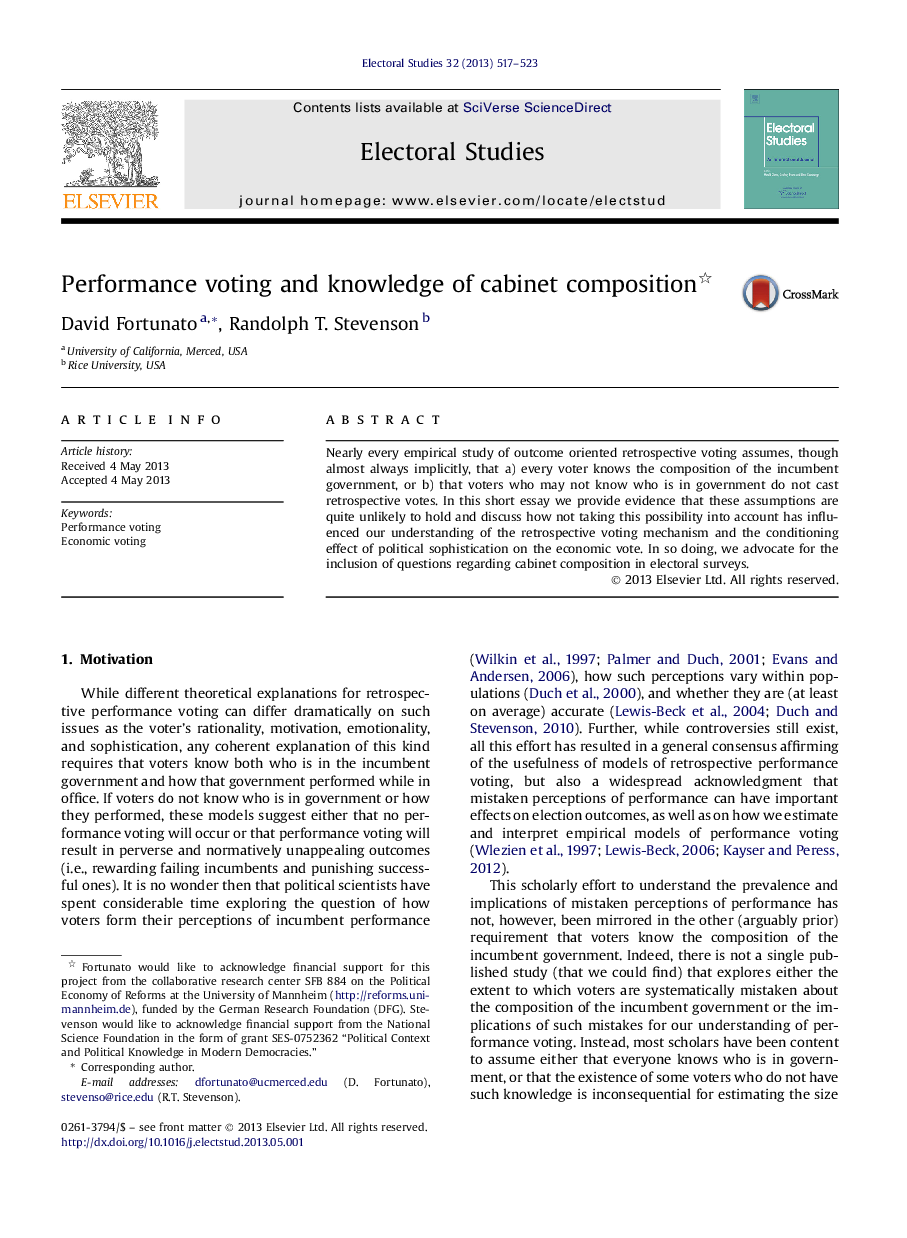| Article ID | Journal | Published Year | Pages | File Type |
|---|---|---|---|---|
| 1052025 | Electoral Studies | 2013 | 7 Pages |
Abstract
Nearly every empirical study of outcome oriented retrospective voting assumes, though almost always implicitly, that a) every voter knows the composition of the incumbent government, or b) that voters who may not know who is in government do not cast retrospective votes. In this short essay we provide evidence that these assumptions are quite unlikely to hold and discuss how not taking this possibility into account has influenced our understanding of the retrospective voting mechanism and the conditioning effect of political sophistication on the economic vote. In so doing, we advocate for the inclusion of questions regarding cabinet composition in electoral surveys.
Keywords
Related Topics
Social Sciences and Humanities
Social Sciences
Geography, Planning and Development
Authors
David Fortunato, Randolph T. Stevenson,
